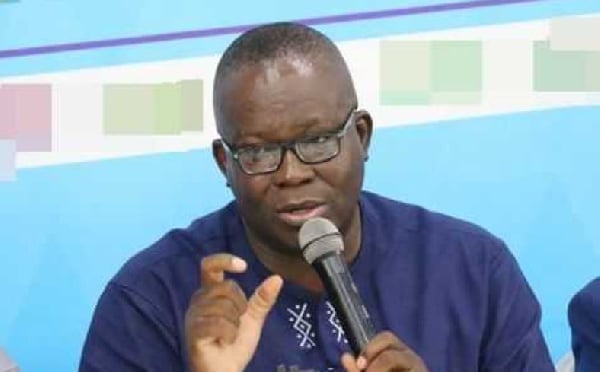On October 4, 2024, Angel Carbonu, the President of the National Association of Graduate Teachers (NAGRAT), revealed critical insights regarding a meeting held between President Nana Addo Dankwa Akufo-Addo and Organized Labour, concerning a looming strike scheduled for October 10, 2024. Amid growing tensions, the President sought to persuade the labour leaders to suspend their strike plans, emphasizing the potential negative implications such a shutdown would have on the country as a whole. Despite the President’s pleas, Organized Labour maintained a firm stance, asserting that it was unrealistic to call off the strike given the ongoing grievances.
During the meeting, Carbonu recounted how Organized Labour conveyed three specific demands to the President before they would reconsider their position on the strike. These conditions reflect serious concerns about environmental and regulatory issues surrounding mining activities in the country. One of the primary conditions set forth was a call for the President to withdraw legislation allowing individuals to engage in mining within forested areas. This demand emphasizes a growing urgency among labour leaders to protect ecological systems from exploitation and degradation caused by unregulated mining practices.
In addition to the withdrawal of the mining law, Organized Labour insisted on a declaration of a state of emergency in mining regions as a means to impose stricter regulations. They proposed that the government criminalize all mining activities in vulnerable areas and around water bodies to prevent further ecological damage. This demand underscores the collective desire among labour groups to prioritize environmental sustainability and safeguard vital natural resources from exploitation that could jeopardize public health and safety.
Furthermore, Organized Labour has urged the President to impose an outright ban on mining activities until a comprehensive framework for regulation can be developed. This condition seeks to address the immediate concerns surrounding mining practices and their detrimental effects on the environment. It signifies a proactive approach to resource management, where stakeholders are calling for a reassessment of how mining is conducted in relation to ecological preservation and community welfare, thereby advocating for balanced development rather than unchecked exploitation.
The ongoing negotiations between the government and Organized Labour reflect broader issues facing the country, including socioeconomic stability and environmental sustainability. As the deadline for the proposed strike approaches, both parties are under pressure to find common ground that addresses the deep-rooted concerns of workers while also considering the implications of a strike on the nation. The government’s response to the outlined conditions will be pivotal in determining whether a resolution can be achieved and if the impending strike can indeed be averted, signaling a commitment to addressing labor rights and environmental protection.
In conclusion, the engagement between President Akufo-Addo and Organized Labour highlights the critical junction at which labor interests and environmental concerns intersect. The conditions presented by Organized Labour not only reflect immediate working conditions but also a broader demand for sustainable governance practices. As discussions continue, the outcomes will undoubtedly shape not only the labor landscape but also the future of environmental policy in the country, making it essential for all stakeholders to work collaboratively toward sustainable solutions that serve both economic and ecological interests.














